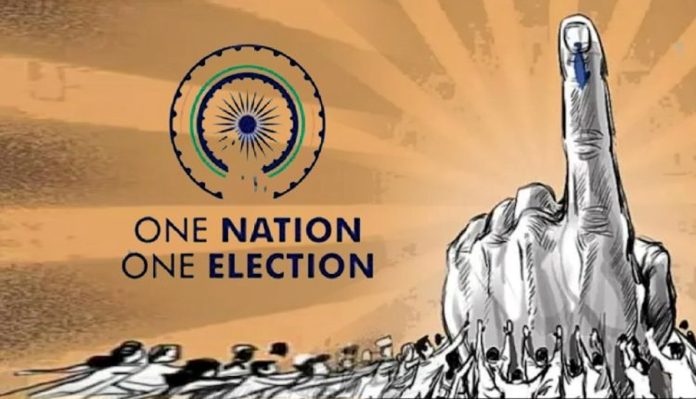NEW DELHI, Sept 15: The BJP-led NDA Government will implement ‘one nation, one election’ within its current tenure, sources said, exuding confidence that the reform measure would receive support across party lines.
As the third term of the NDA Government led by Prime Minister Narendra Modi completes 100 days in office, the sources said that the cohesion within the ruling alliance will continue for the rest of the tenure.
“Definitely, it will be implemented in this tenure itself. It will be a reality,” one source said, speaking on condition of anonymity.
In his Independence Day address last month, the prime minister made a strong pitch for ‘one nation, one election’, contending that frequent polls were creating hurdles in the country’s progress.
“The nation has to come forward for ‘one nation, one election’,” Modi had said in his address from the ramparts of the Red Fort.
The Prime Minister urged the political parties “from the Red Fort and with the national tricolour as a witness to ensure the nation’s progress”.
He also asked the parties to ensure that national resources are used for the common person and said, “We have to come forward to realise the dream of ‘one nation, one election’.”
‘One nation, one election’ is one of the key promises made by the BJP in its manifesto for the Lok Sabha elections.
A high-level panel headed by former President Ram Nath Kovind in March this year recommended simultaneous elections for the Lok Sabha and state assemblies as the first step followed by synchronised local body polls within 100 days.
Separately, the Law Commission is likely to recommend holding simultaneous polls for all three tiers of government — Lok Sabha, state assemblies and local bodies like municipalities and panchayats — starting with 2029 and a provision for unity government in cases like hung house or no-confidence motion.
The Kovind panel has not specified any period for rolling out simultaneous polls.
It has proposed creation of an ‘Implementation Group’ to look into the execution of the panel’s recommendations.
The panel recommended as many as 18 constitutional amendments, most of which will not need ratification by the state assemblies.
However, these would require certain Constitution amendment bills that would need to be passed by Parliament. (Agencies)


